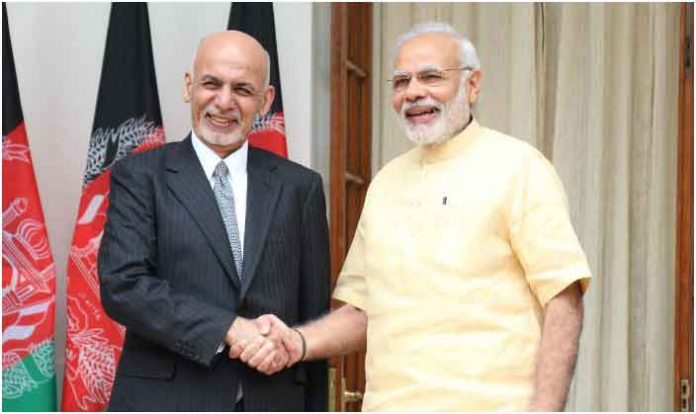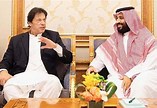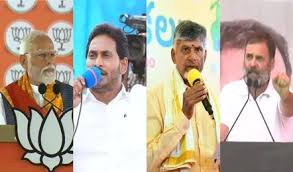President Ashraf Ghani’s latest visit to New Delhi (14-15 Sept 2016) was marked with warmth and exuded abiding friendship, unlike his earlier one in April 2015. A slew of agreements signed this time reflected a vibrant convergence of vital interests —-security, economic and political. The positive turn in the India- Afghan relations can be ascribed largely to the changing dynamics of regional politics.
On taking over the reins in Kabul in September 2014, President Ghani accorded top priority to ensuring stability and security of the war ravaged, landlocked country.
Taliban insurgency is Afghanistan’s festering sore. It is fanned from across Durand Line.Logically Pakistan therefore holds the key to ending instability in his country. And President Ghani turned to Islamabad and Rawalpindi expecting them to exercise their restraining influence on the Taliban and to act as facilitators in the reconciliation process.
The anthropologist by training walked the extra mile to humour his Pakistani interlocutors over the past two years but his mission is nowhere near the goal post with Pakistan unwilling to rein in the various Taliban groups as a part of its Great Game.
The Taliban have in fact become more vicious. And are not inclined to sit across the table though China also gave them an earful by hosting the insurgent leaders in Beijing.
The Istanbul initiative, known as ‘Heart of Asia’ conclave, also left Ghani disappointed. It was designed to make Afghanistan emerge as the transport hub. The Afghanistan Pakistan Trade and Transit Agreement (APTTA) was signed in 2010 to further the process of making Afghanistan the Land Bridge with Eurasia.
But the APTTA has ended up as a one-way street.
Kabul trucks can take Afghan wares to India by road through Torkham (border crossing between Pakistan and Afghanistan), and Wagah (Pakistan-India border post) but cannot carry back Indian goods. Not once but twice President Ghani voiced his concern. He even warned Pakistan of denying access to Central Asia through the Afghan territory. Islamabad remained unmoved.
DURAND LINE DIVIDE
Historically and geo-politics wise, Pakistan and Afghanistan were never on the same page in the past. Now as well.
The Afghans have never accepted the Durand Line even when the Taliban were in full control of Kabul.
On its part, Pakistan has always been striving for a strategic depth beyond the border divide. Islamabad, in fact, has not reconciled to the presence of an independent, sovereign Republic on its western border. The Quetta Shura is nurtured as a matter of state policy.
All this makes convergence of interests between Kabul and Islamabad difficult. President Ghani is not unaware of the ground realities. Yet he tried to break the cycle. He deserves appreciation for his statesman-like effort, though the writing on the wall was clear from Day One.
The United States is a critical player in Afghanistan. It has led the ‘war on terror’ along with the North Atlantic Treaty Organisation (NATO) forces against the Pak sponsored and controlled Taliban insurgents.
The 13 -year war has met with partial success.
The insurgency has weakened; some of the powerful leaders have been decimated but the terrorist infrastructure along the border on Pakistan side remains intact.
As a consequence, after the withdrawal of the bulk of the coalition forces by end 2014, there has been a re-assessment of American strategy. Washington grudgingly acknowledged that Pakistan has pursued a dual policy of supporting the coalition forces in their fight against the Taliban while not destroying all the groups nor dismantling their infrastructure.
OBAMA DISAPPOINTMENT
A former White House and Pentagon staffer, Derek Chollet, says the US now realises that Pakistan is the problem as well as its solution. This is a marked shift from the strategy that rested on linking Afghanistan and Pakistan.
“If I look at disappointments for President Obama, it would be Pakistan, given the amount of time and resources invested into the relationship particularly in the first year…,” he said while in New Delhi in early September to speak at Carnegie India about his latest book, “The Long Game: How Obama Defied Washington and Redefined America’s Role in the World”.
According to Chollet, one of the key conclusions that President Obama made at the beginning of his first term was that Afghanistan and Pakistan needed to be seen together and that linkage was critical to understand that Afghanistan could not be solved alone.Due to this, he said, the U.S. spent tremendous amount of resources to try and help Pakistan and influence its behaviour. “I think it’s hard to see how that has worked. Particularly given that the amount of energy we put into this, today it is not as satisfying as it should be.”
Conceptually more resources would give greater leverage but the America’s Af-Pak experience shows more resources alone do not pay off.
Pakistan has been the largest recipient of U.S. aid under the Coalition Support Fund (CSF), a programme under which allies are compensated for their counter-terrorism support. The superpower paid about $14 billion to Pakistan since 2002.
The latest tranche of $300 million was, however, withheld (August 2016) as Defence Secretary Ashton Carter has not certified to the Congress that Pakistan has done enough on counter terrorism front.
All this and Secretary of State John Kerry’s latest homily to Prime Minister Nawaz Sharif (on the sidelines of UNGA) reflect the current mood in Washington. And show that the U.S.-Pak relations are on the decline since Pakistan is not reigning in the Afghan Taliban and the Haqqani Network, which have been getting stronger in Afghanistan.
INDIAN PERSPECTIVE
As a corollary to its re-assessment of Af-Pak scene, the U S is keen to enlist the support of India in its Afghan enterprise. It expects heightened Indian involvement in Afghanistan in all spheres including security and defence. And has revived India- Afghanistan – U S trilateral on Afghanistan. The consultative group held its first meeting in New York on Sept 21.
A US statement later said: “The meeting provided a forum for the U.S. Government and the Government of India to explore ways to coordinate and align their assistance with the priorities of the Afghan government. They agreed that the dialogue helps advance shared values and goals, and decided to continue these consultations on a regular basis”.
From an Indian perspective the shifting regional dynamics augur well for its Afghan policy. The developments are not only favourable, but also positive for its larger engagement with Central Asia. Moreover, as aptly observed by the Director General of the Afghan Institute for Strategic Studies, Davood Moradian, under Prime Minister Narendra Modi, India’s Afghanistan policy is shifting “from a reluctant albeit to a friendly one, to a more confident and multi-dimensional approach”.
While giving a vigorous push to its Afghan policy, India will do well to avoid tardiness in implementing its projects. New Delhi must make good on the promises it has made.
CHINA FACTOR
In the changing matrix of regional politics, the growing role of China in Afghanistan is of equal importance. India and China share the same goals in Afghanistan, namely security and stability of the country. Both agree that the instability arises from non-traditional threats.
China’s biggest worry at this juncture is the increasing militant activities of Uyghur Muslim minority of the restive Xinjiang province. The attack on its embassy in Bishkek, Kyrgyzstan highlights its growing concerns. Many of these militants are based in Af-Pak region as guests of Afghan Taliban.
India and China have developed major economic interests in Afghanistan. In pursuit of their respective stakes in Afghanistan and Central Asia, a competition or what some analysts term as the ‘great game’ is already under way between the two countries. At present economic interests are paramount for both countries; the competitive aspect possibly could emerge in future. So much so India should engage with China in Afghanistan on a consistent basis.
The India -China engagement in Kabul may be viewed with circumspection by Pakistan. That is to be expected given Islamabad – Rawalpindi combine’s seize mentality that has encouraged militancy and extremism as proxy war tools.




